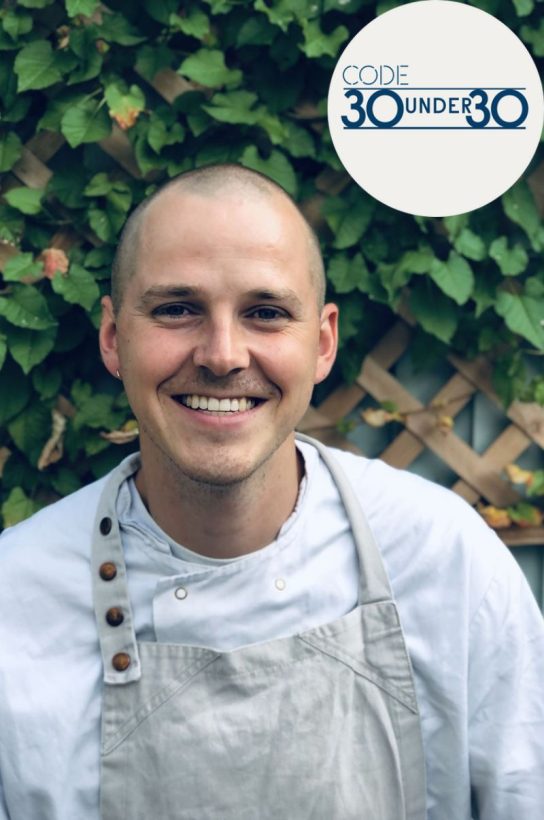Jack Feeny, founder of No Mise en Plastic, on CODE’s 30 under 30
Published 9 December 2022

Jack Feeny, founder of No Mise en Plastic
As part of this year’s 30 under 30 list, we have awarded three entrants a special accolade. The ‘Innovator award’ is given for taking a new and dynamic idea and working to solve industry challenge. Here we speak to this year’s Innovator winner Jack Feeney, the founder of No Mise en Plastic.
What does this award mean to you?
I’m thrilled to receive the award – it feels amazing to be recognised. There are so many great chefs that are part of the Code community and so it’s a good opportunity to spread the word about No Mise En Plastic and share the free manual with others.
How do you feel about hospitality in the UK and your part in making it so rewarding?
The hospitality industry has been key to my love of food, and I’ve met so many great and inspirational people. I feel sad to see so many closures due to issues outside our control. These have overshadowed all the many positive changes currently happening, such as the increased focus on reducing food waste, more inclusivity in kitchens, staff being paid the right amount and welfare being at the forefront of job offers.
What do you hope to achieve in the future?
I would like to further grow No Mise En Plastic and continue to create a platform where chefs, from anywhere in the world, can share their practical techniques or solutions to help reduce the sector’s environmental impact. I’m also about to go part time as a chef and complete a masters degree in regenerative food, farming and enterprise, with the goal to open a regenerative farm-to-table restaurant.
Why is young talent so important?
At 29, I don’t really feel like young talent but I have worked in kitchens with chefs in their early 20s and I’m always impressed by the progressive and innovative ideas coming into the kitchen. Young talent brings a fresh energy and perspective and chefs today seem to understand what’s truly important.
Hospitality often has a stuffy and old fashioned public perception, how do you feel innovation in the industry help to champion change?
I think you can see how innovation champions change things through the success of people like Chantelle Nicholson and her restaurant Apricity. Her menus are guided by their regenerative suppliers. Another is Oli Williamson, head chef at the Fat Duck, whose staff receive a weekly reflexologist visit and are able to access subsidised gym memberships. People are talking about them and more are following suit.
Creating new ideas, discovering new solutions and bringing them to life is what makes an innovator – how do you think these much needed changes can impact the wider industry?
The changes needed to reduce the amount of single-use products a kitchen uses are really simple and actions that can be taken straight away. Although removing these Iitemsdoesn’t immediately make it sustainable, it does have an important impact in the long-term. It also helps to alter mindsets.
One chef refusing to use clingfilm in their kitchen can encourage others to ask questions. It can make the whole team start to value the materials they use daily and to take steps to move forward. Seeing how easy it is to avoid single-use products and witnessing the positive response from customers can then inspire chefs and teams.



